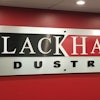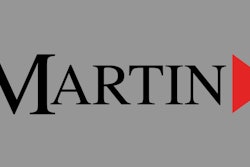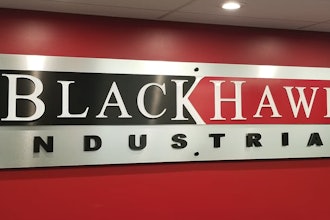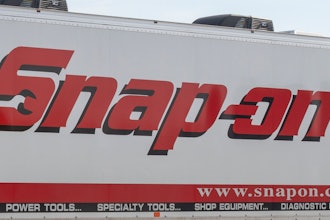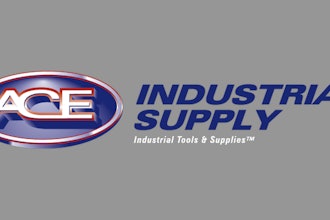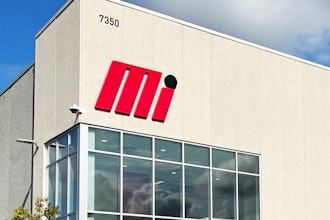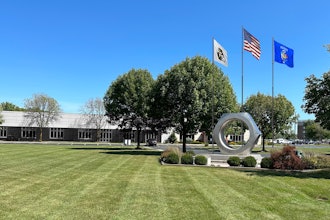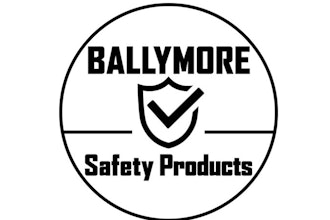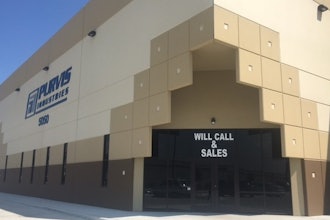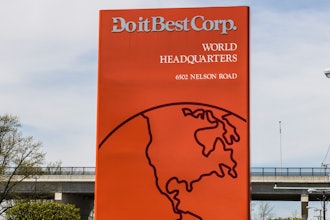This article originally appeared in the July/August 2012 issue of Industrial Distribution. To view it in its original format, click here.
Industrial distributors owe a lot to the strong system of cooperatives in the marketplace. From independent buying groups to those who serve marketing and logistics functions – where there’s a need, there’s a solution.
When navigating the combined effects of a tight economy, supplier and customer pressures, and fluctuating procurement costs, it’s evident that there can never be too big of a support system in place.
A cursory Google search will unveil a buffet of resources available to the industrial distributor – many of which are specifically tailored in either their functional role (co-op marketing and promotion work, for example) or assume a collaborative function in a specific niche like safety or a product category (such as the Global Fastener Network, a buying group solely designed for fastener distributor members).
The industrial distribution marketplace offers a particularly strong network of organizational resources. Because so many exist — and offer such a varying array of services — how can a distributor determine which, if any, is the right one?
Buying Groups: Leveraging Economies of Scale
We spoke to several industrial buying groups, asking them to confront the misconceptions some companies have about these collaborative types of efforts, as well as discuss the ways in which distributors can optimize the value of what they have to offer:
NetPlus Alliance: Founded in 2002, NetPlus Alliance has over 410 industrial and contractor supplies distributors doing over $9 billion in sales annually. With a low entry fee and no annual dues or fees, “The unsaid question of member prospects is, ‘what’s the catch?’” says Dan Judge, president. “In fact, there is no catch. Buying groups can be beneficial to distributors of all sizes because we have the ability to negotiate based on the groups’ combined purchases to all members.”
NetPlus Alliance sees its core value in several key areas, most notably this ability to leverage its buying power, but also in allowing distributor members the opportunity to grow their business with 130 supplier programs from industrial and contractor supplies manufacturers, wholesalers, and business service suppliers, including access to key senior management personnel. In addition, says NetPlus, a distributor can increase their product line profitability by 100 to 200 percent through the group’s pricing and rebate programs with NetPlus suppliers.
Most importantly, the organization stresses a role is “not intrusive into the way a member distributor runs their business,” says Jennifer Murphy, vice president and COO. “Our simplified business model maximizes the return to our members with minimal change to their business operations and no mandated requirements.”
INCOM: Being very vocal about a lack of mandates resonates with other organizations as they strive to sidestep a potential member company’s fear that their independence will be lost if they elect to join. For members of the MRO-focused buying group INCOM, being able to pick and choose services in an a la carte format has allowed the value proposition to uniquely adapt to each business. “We provide our members menus, not mandates,” explains Tom Barfell, director of INCOM Distributor Supply™, the industrial division of Do it Best Corp., a $2.7 billion, debt-free buying cooperative founded in 1945. INCOM has eight distribution centers strategically placed throughout the country, stocking over 65,000 SKUs. The group also offers direct programs with over 6,000 manufacturers worldwide.
“Our members have found that by allowing us to take care of the ‘back room’ work, they can focus on selling and connecting with their customers,” explains Barfell. “We provide the logistics, marketing, and training tools necessary for them to be successful. Our economies of scale as well as our expertise in all these areas allow our members to operate much more competitively and with far less overhead than if they tried to do it themselves.”
DPA: Distributor Partners of America (DPA) is a member-driven marketing and procurement organization of over 350+ independent distributors, and approximately 150 national suppliers. DPA’s Safety Division, a seven-year-old arm, is the fastest growing of the group’s four market segments. According to Zachary T. Haines, executive director, DPA stands out among buying groups that bring together distributors and suppliers, mainly based on its “quarterly rebates, better pricing, lower minimums, and better freight policies.”
“Distributor membership is free,” he adds. “We are about carrots and not sticks. Every percentage point of savings matters, and distributors who are members of DPA will benefit from lower prepaid freight minimums, extended terms, last column/best bracket pricing, lower minimum order requirements, and, of course, their quarterly (CJD) rebate. DPA distributors turn to DPA suppliers to take advantage of these benefits, versus buying from suppliers outside the group.”
IDC-USA: IDC-USA’s members consist of independent distributors in the bearing, power transmission, and related industries in cities located across the country. According to Jack Bailey, president & CEO for IDC-USA (Independent Distributors Cooperative-USA), the “cooperative” nature of the organization is what counts for a group that stresses the ownership benefit. “What makes their ‘membership’ unique is they are not just members; they are owners of IDC. We refer to them as owner-distributors. Many of our owner-distributors are 2nd and 3rd generation in the industry, bringing valuable knowledge and expertise to their customers,” he says.
IDC-USA is a national purchasing, marketing, and selling cooperative representing over 260 independent distribution locations coast-to-coast, and that number continues to grow. IDC-USA has partnered with over 70 suppliers to serve end-users with the highest quality bearing, power transmission, hose, rubber, hydraulics, and related products available. One of the other things that makes the organization unique is its warehousing capabilities: With DCs in Reno and Indianapolis, the group can provide stocking for member suppliers, and access to inventory for the distributors.
In addition, “The investment we’ve made in people and technology has provided IDC-USA with the right combination to remain nimble,” says Bailey. “The industry is changing, and good people and technology are the solution to keeping up — making business easier, faster, and more convenient is the key.”
Effective Operations Support
Not all of the available cooperatives include purchasing issues in their primary objectives. Organizations like The Evergreen Marketing Group and Affiliated Distributors bring opportunities for distributors to streamline operational functions like marketing, training, and term negotiations.
For Kevin D. Higginbotham, CEO of The Evergreen Marketing Group, professional development training is key to his organization’s ability to improve a distributor’s effectiveness when it comes to sales and operations.
“We partner with our preferred suppliers to develop and conduct dozens of training events each year to improve the performance of distributor people. These professional development programs help our distributor sales people deliver higher-quality customer service to the industrial buyers and contractors they serve because the sales person is much more knowledgeable about the products and applications they use,” he explains. “We also have programs for the operations/purchasing people. In addition, reams of studies show that companies that offer their employees an active and ongoing professional development program are more likely to retain them. We believe that truly effective professional development requires a multi-faceted approach.” This multi-faceted approach also includes instructor-led, hands-on schools at Evergreen’s Founder’s Training Center; a robust online training effort available 24/7; regionally based workshops and programs; and live web-events.
In line with this, Evergreen also focuses on core sales and marketing goals, citing its program “Planning for Profit” as a way to provide distributors and manufacturers with an annual framework for planning and executing joint sales and marketing activities together. “Evergreen’s Planning for Profit Program gives the distributors and preferred suppliers the tools they need to create action plans and hold each other accountable,” says Higginbotham. “Annually, Evergreen recognizes the companies and individuals who do the best jobs at executing Planning for Profit. This program really drives partnering and relationship-building at the local market level.”
For PA-based Affiliated Distributors, its specialization comes down to the needs of the independent distributor — most notably, being able to supplement these distributors’ core competencies with services that allow the member company to focus on its primary objective: moving product.
With six divisions (electrical supplies; industrial supplies; plumbing supplies; HVAC equipment and supplies; drywall and drywall related products; and pipe, valves, and fittings), AD leverages its group’s collective economics of scale to make collaborative investments in people, programs, and technology. Some of AD’s services include things like data collection and reporting, rebate negotiations and administration, terms & conditions negotiations, market planning support, logistics, product training support, new product introduction support, and product promotion support. Financially, the company functions exactly like a cooperative. It shares expenses, distributes earnings according to each distributor’s participation, and retains no earnings. “Our members represent the best of the best, industry leading independent distributors. While our membership certainly places great value on improved profitability that we generate for their respective companies, they also place equally great value on the networking opportunities that take place within AD,” explains Jack Templin, president of the Industrial Supply Division of Affiliated Distributors. “Progressive, like-minded companies, sharing best practices to make each other better is of tremendous value to our members.”
The typical AD distributor member, Templin adds, simply has so much on their plates that utilizing a co-op group to address ancillary issues can provide enormous value. “While they are certainly ‘logistically proficient,’ that is not at the core of their value proposition,” he explains. “They are more than ‘box movers;’ they are leaders in their respective markets and represent the ‘who’s who’ of industrial distributors.”
Creating Value, Retaining An Edge
But for some, this all-hands-on-deck method to growing a business may strike the “competitive advantage” nerve, throwing up a red flag over whether an individual company’s independence might be compromised. Could a business’s trade secrets be at risk with this kind of approach?
NetPlus Alliance’s Judge stresses the fact that his group does not intrude on normal day-to-day. “Distributors do not lose their independence when they join,” he says. “They continue to operate their business as they always have.”
IDC-USA lays emphasis on “best practices camaraderie” versus focusing on competitors. With the networking benefits that many of these groups can provide, membership means volume discounts are just the foundation of a multi-tiered resource. “Our mission is simple: Help our owner-distributors remain independent,” says Bailey. The nature of the organization, then, relies on its ability to obtain and integrate the constructive feedback coming from its member pool — thus, ultimately working to circumvent the erosion of the independent. “We don’t want the manufacturers in this industry to end up with only three customers.”
Adds INCOM’s Barfell: “By joining INCOM Distributor Supply, members don’t lose their independence, they strengthen it,” More specifically, he explains, member companies are able to be more competitive against the national players because they have all the tools they need at a fraction of the cost.
For AD Chairman and CEO, Bill Weisberg, organizations like his also enable smaller independent distributors to stand up to the consolidation facing the industry. “Over the course of our 30 year history, we’ve witnessed numerous cycles of consolidation — and we heard in every one of those cycles how independents were going to be a vanishing or diminished breed. And yet, we’ve seen strong independents grow, evolve, and emerge stronger out of every one,” says Weisberg. “Consolidators and national chains are just not able to replicate or threaten the local market power of strong independents. The bottom line is that end-users and suppliers truly value and reward the characteristics and values that AD members share.”


